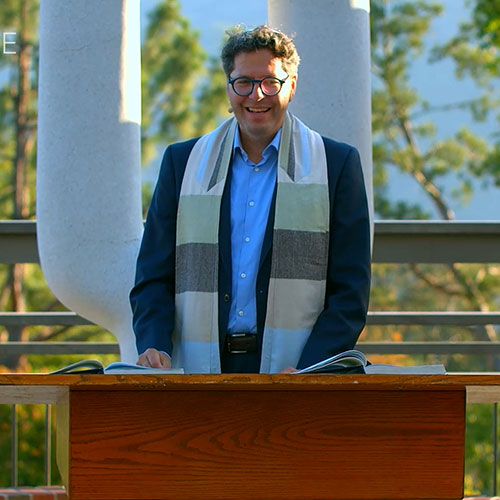
The Good Shepherd
Rabbi Yoshi Zweiback
July 7, 2023 | 18 Tamuz, 5783
Riding on the back of his grandfather’s motorcycle at age 11, Rabbi Yoshi Zweiback learned a lesson about loss. As then-70-year-old Grampa Joe pointed to a storefront filled with tombstones, he told Rabbi Yoshi that he needn’t worry: After his wife passed, he made sure to have his bought, carved, and paid for. On Grampa Joes’ 31st yahrzeit, Rabbi Yoshi reflects on what that moment meant.
Grampa Joe, still riding his Honda 450, riding horses, and grilling steaks in the snow, knew that he had to have his affairs — emotional, spiritual, and material — in order, so that his family need not be burdened. It’s a lesson echoed in Parashat Pinchas, which describes Moses’ first and last view of the land he worked so hard to reach, but would not be allowed to enter. When God tells Moses that his time is at an end, Moses does not object. Instead, his only concern is that God appoint someone to lead the people, ‘so that Your community may not be like sheep that have no shepherd.”
Moses was not consumed with bitterness about not entering the Promised Land, despite all he’d gone through to bring the Israelites there. He understood that his duty was to those who put their trust in him, who relied on him, first. Medieval scholar Rashi wrote that this passage teaches us how praiseworthy the righteous are, who put their affairs in order and busy themselves with the needs of the community.
In the Talmud, Rabbi Eliezer teaches that you should repent one day before you die. His students reply that not every person is so lucky to know which day will be their last. That, Rabbi Eliezer said, is the point: Repent every day, because you don’t know.
Because one can never truly know what day will be their last, Rabbi Yoshi says, we should never leave things unsaid, apologies unspoken, affairs of the heart left unresolved, and forgiveness ungranted.
Watch this week’s video and all Shabbat sermons HERE.
